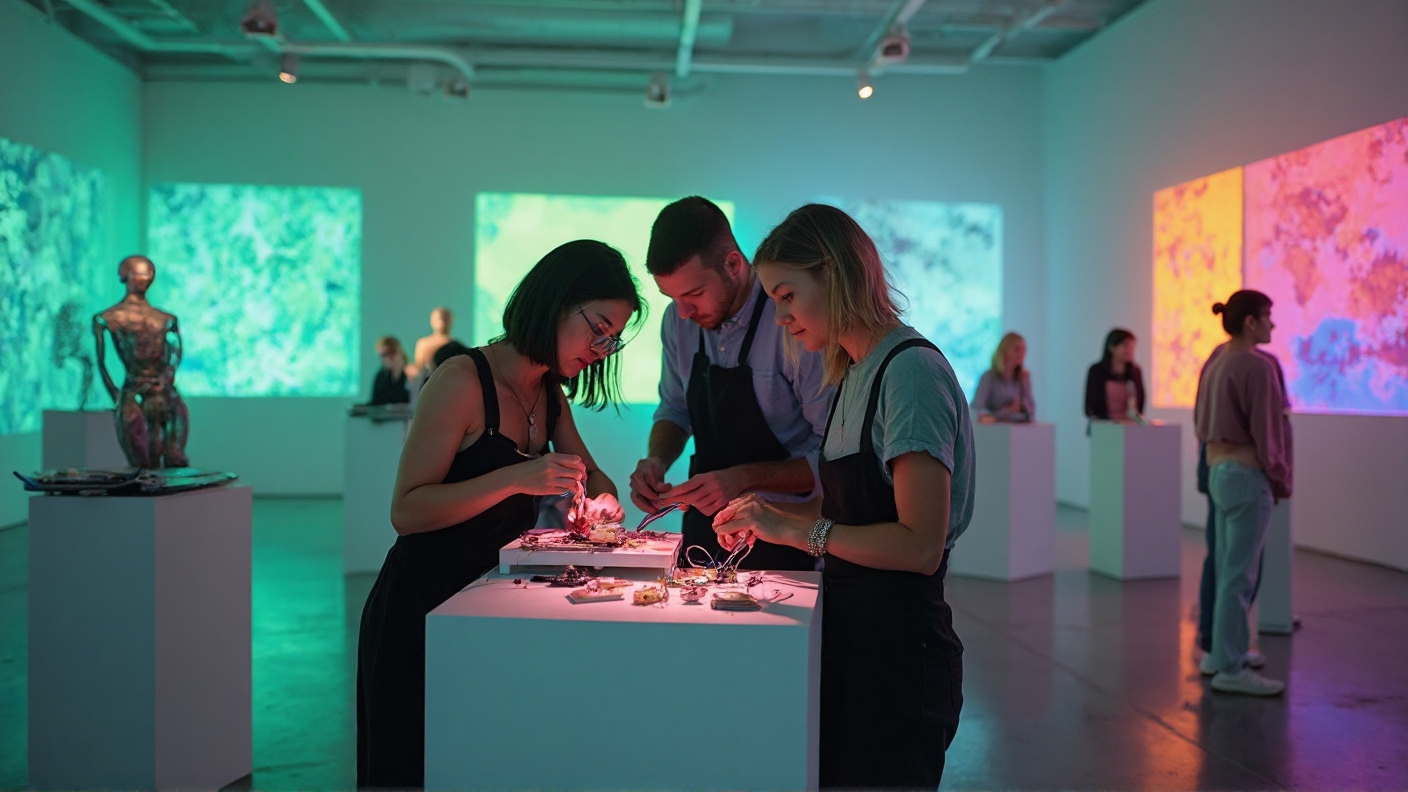
MA in Service Design (Part-time)

15 Sep 2025
-
27 Aug 2027
Places
15
Apply By
1 Sep 2025
Apply To
NCAD
ECTS Points
90
Course Code
AD431
Duration
2 year part-time
Fees
€4,500
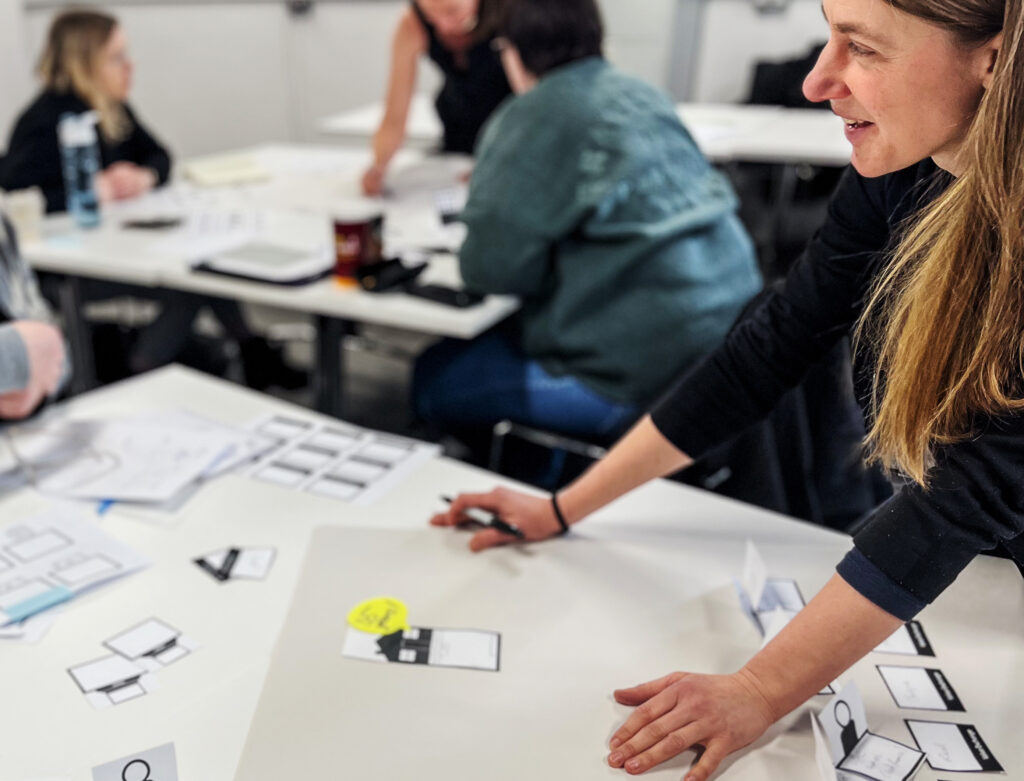

15
1 Sep 2025
NCAD
90
AD431
2 year part-time
€4,500

– Sarah Gibbons and Pable Fernández Vallejo, NN/g
The award-winning MA Service Design is a 24 month, part-time taught masters programme that teaches the application of service design methods, tools and thinking to sectors such as healthcare, technology, finance, transportation and education.
Through a series of live design projects, students will engage with complex economic, technological, political and social issues, creating new service solutions that revolutionise everyday experiences.
Students will have the opportunity to be taught and mentored by industry experts from across the public and private sectors. Our guest lecturers include designers from Snook, BNP Paribas, Verizon Connect, Fjord, Optum, Pfizer, Scottish Government, Novartis and many more.
The MA in Service Design provides a scholarly framework for students who wish to develop their expertise as a Service Designer.
The modules seek to prepare students, from the broadest range of undergraduate backgrounds, with the practical and theoretical means to develop contemporary service design practice and theory, while also benefiting from a broader design discourse and student cohort through interdisciplinary projects.
Target groups include learners with background/ interest in:
The global service economy is growing rapidly and accounts for more than 70% employment in all OECD countries, presenting exciting possibilities for design.
Service designers create solutions for complex systemic and societal challenges, developing experiences that address the needs of a diverse range of stakeholders.
This programme attracts students from fields such as design, business, sociology, systems thinking, urban planning, banking, customer service, technology and the public sector. Graduates have gone on to shape the services around us in the fields of consultancy (Deloitte, IBM, Accenture), public sector (Mater Hospital), and academia (Eye-Vu, NCAD, Maynooth).
Students undertake a number of core modules, and have the opportunity to undertake a 5 credit module from a suite of elective options from across the college and partner institutions.
Trimester 1
Design Principles – 5 credits
This module introduces learners to fundamental principles, working methods, skills and theories within their specific programme of study that underpin contemporary creative practice. This module will focus on the theoretical underpinnings, contemporary issues, topics and concepts relating to Service Design. Introducing learners to the fundamental principles and processes of the discipline, and enabling them to approach studio work from a theoretically informed perspective. The module aims to improve their awareness of the issues that determine the usability of a designed service through the lenses of People, Data and Systems.
Service Design Fundamentals – 10 credits
This module focuses on the theoretical underpinnings, contemporary issues, topics and concepts relating to Service Design. The aim of the module is to introduce students to the fundamental principles and processes of the discipline, enabling you to approach studio work from a theoretically informed perspective. The module aims to improve student’s awareness of the issues that determine the usability of a designed service. Throughout the module students are introduced to various theories, factors, methods, and tools of Service Design. The module focuses on the interdisciplinary nature of Service Design, covering topics ranging from participatory design to human factors.
Trimester 2
Design Practices 1 – 5 credits
This module enables learners to undertake a body of work within their chosen creative specialism, supporting their personal and professional development as a designer.
The aim of the module is to give the learners experience of a range of approaches relating to the design of services and their constituent touchpoints, with a focus on users, experience and context of use. Students will learn and apply fundamental service design approaches, methods and tools. The module will incorporate lectures, seminars, workshops, fieldwork and studio work. Students will work independently and in groups, giving them the opportunity to work in a self-directed and collaborative manner.
Service Design Studio – 10 credits
This module focuses on the theoretical underpinnings, contemporary issues, topics and
concepts relating to Service Design. The aim of the module is to introduce students to the
fundamental principles and processes of the discipline, enabling you to approach studio work from a theoretically informed perspective. The module aims to improve student’s awareness of the issues that determine the usability of a designed service. Throughout the module students are introduced to various theories, factors, methods, and tools of Service Design. The module focuses on the interdisciplinary nature of Service Design, covering topics ranging from participatory design to human factors.
Trimester 3
Creative Elective – 5 credits
The programme facilitates inter and intra institutional mobility through the Creative Futures Academy (CFA) partnership, enabling MA Service Design students to undertake a 5 credit CFA elective module offered by another NCAD programme, or from our CFA partners at IADT and UCD.
Design Proposal – Major Project – 10 credits
Learners will initiate and state a design project of their choice (by negotiation with their tutor/s) which will encompass: information retrieval, collation and interpretation. The module will develop the learner’s ability to understand how to find scholarly and professional literature on the topic that interests them, and relate that literature to their research question. Their goal is to describe what is already known about their topic, how it has been researched by others, and how their question and the research methods they seek to employ different methods from that of previous design researchers. This will then enable learners to develop a feasibility study where through a process of analysis and evaluation of a proposed project they will determine if it is required, appropriate and feasible.
Trimester 4
Design Collaborations 1 – 5 credits
This module introduces learners to methods and techniques that will help you to navigate the evolving creative landscape, identify opportunities and collaborate to address creative challenges. Learners will undertake a thematic project with colleagues and creative peers, and develop work through teamwork, negotiation and collaboration.
During this project learners will operate in teams and will be tasked with a live project brief from a client. The response to the allocated brief must be grounded in human-centred research and insights. Learners will move through the process of understanding the challenges faced by the client, identifying key insights, generating and exploring ideas and evaluating these with project stakeholders. Teams will deliver and present ideas that demonstrate a comprehensive process for solving complicated, multi-faceted problems of design.
Strategic Design for Change – 10 credits
This module will enable learners to explore the capacity of design as a critical and collaborative agent of social, cultural and economic change. It also seeks to position design as a creative forum for exploring a dynamic, changing world full of critical, contradictory and provocative ideas. The module considers the potential impact of design on a range of specific topics including human behaviour, societal change and international development. Through a series of lectures and group tutorials students will examine the role of the designer in the 21st century in relation to these broad issues. Learners will develop and present their own ‘Strategic Design for Change’ concepts and engage with a combination of faculty, industry and external stakeholders in the development and delivery of their project.
Trimester 5
Design Capstone 1 – 5 credits
This capstone module enables learners to undertake a project that demonstrates their fundamental knowledge of specific creative practices and theories. Learners will reflect upon, document and disseminate their creative practice.
Learners will undertake a project with an external partner. Learners will generate a bespoke methodological approach for the specific design context and execute this approach. This approach will span all stages of the design process from interpretation of the brief, research, ideation, evaluation and delivery. An individual reflection piece on the learning acquired through this process will be required.
Collaborative Design Studio – 10 credits
This module will see learners undertake a live industry project working with stakeholders to devise, prototype and text service design concepts and solutions in ‘the wild’. Learner’s will build on their ability to work within a team, alongside a client in a problem-oriented, project-oriented and collaborative way. This will give students the opportunity to further develop and apply primary research methods, incorporating research findings and insights in a collaborative design project. Learners will also employ a variety of techniques to evaluate their solution with relevant stakeholders from across a range of disciplines. Outcomes will be disseminated and communicated visually and verbally at an appropriate professional standard.
Trimester 6
Design Studio – Major Project – 15 credits
During this module learners will work on a self-selected and generated major project, which offer the opportunity to undertake a wide-ranging and in-depth practical and theoretical investigation into their chosen field of practice. Students will be supported to execute projects from both a pragmatic and speculative perspective, demonstrating their ability to prepare and present their work in a variety of contexts and formats both for the purposes of assessment and for the wider dissemination and promotion of their practice to peers, public and a professional audience.
The part-time programme is delivered at a rate of 15 credits per trimester, enabling learners to maintain their own creative practice and/or employment. This equates to a 20 hour a week commitment (one contact day a week plus self directed learning) over a 2 year period.
Programme Structure
Year 1 – Trimester 1
Design Principles (C) 5 credits
Service Design Fundamentals (C) 10 credits
Year 1 – Trimester 2
Design Practices (C) 5 credits
Service Design Studio (C) 10 credits
Year 1 – Trimester 3
Creative Elective (O) 5 credits
Design Proposal (C) 10 credits
Year 2 – Trimester 1
Design Collaborations 1 (C) 5 credits
Strategic Design for Change (C) 10 credits
Year 2 – Trimester 2
Design Capstone 1 (C) 5 credits
Collaborative Design Studio (C) 10 credits
Year 2 – Trimester 3
Design Studio – Major Project 15 credits
Exit Points and Credit Requirements
Students who successfully complete the first trimester of the programme, but leave the programme, may qualify for a Graduate Certificate in Service Design (30 credits). All modules must be completed at the first attempt (no resits). To qualify, the Head of School must recommend to the Exam Board that the qualification be awarded to a student.
Students who successfully complete the first two trimesters of the programme, but leave the programme, may qualify for a Graduate Diploma in Service Design (60 credits). All modules must be completed at the first attempt (no resits). To qualify, the Head of School must recommend to the Exam Board that the qualification be awarded to a student.
On completion of all modules in the first three trimesters, and on accumulation of the corresponding 90 credits, a student may exit the programme and graduate with a Master of Arts in Service Design (90 credits).
Final Award Calculation
The final award is calculated using the credits and grades from all modules in the corresponding programme.
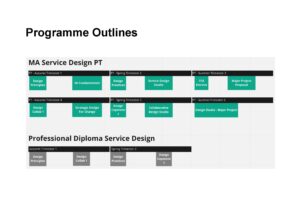
Contact day for the MA is Thursday 9.30am – 4.30pm.
This is a combination of in-person and online weekly sessions.
Two exceptions:
The part-time MA provides the opportunity for students to engage in an inter-disciplinary educational experience, working alongside postgraduate students from across the School of Design. We encourage our students to explore contemporary themes that connect all the design disciplines. Building on the knowledge and skills developed at undergraduate level and professional practice, students encounter new contexts in which to develop their skillsets and deepen their knowledge of design through a range of interdisciplinary projects, before undertaking a major project within their chosen design discipline.
A number of modules has been design specifically with the collaborations in mind, ex:
Previous project partners have included:
FJORD
Rediscovery Centre
The Mater Hospital
Arrival
We encourage our students to experiment and take risks in order to carve new understandings of design and make technical innovations within, and across Service Design. Graduates have gone on to secure positions in the fields of Service Design, UX, Experience Design, CX and Strategic Design.
In challenging the purpose, methods and ambitions of contemporary service design practice and research, students will identify opportunities and develop their own creative careers.
It is intended that some graduates will choose to remain at NCAD progressing to PhD level.
The programme aims to contribute to the development of the research culture of the College by expanding the scope of expertise in design and by providing a pathway into further research specialisation in the field of design. By supporting the academic development of students there is scope for the development of a research cluster, which will explore a wide range of topics in the field through both theoretical and practice-based research.
Educational Standard
All applicants are expected to present an approved Bachelor degree at minimum level of 2nd class honours (2.2)
Applicants who do not meet the minimum academic entry requirements may be considered on the basis of prior work or learning experience (RPEL). Candidates may be required to pass a qualifying examination set by the relevant department before being accepted to a Masters degree programme. Attendance at selected undergraduate lecture courses at NCAD, together with related written work may be prescribed.
You may apply for the programme if you are currently completing your Undergraduate Degree. NCAD will review the rest of your application If necessary, we can make you a Conditional Offer. When your degree is completed and you send us final transcripts we will upgrade this to a Full Offer.
Applicants who have not been educated through English must show proof of achieving IELTS 6.5 (with a minimum of 6 in the writing section on the Academic Version) or an equivalent score in another accepted test.
Graduates from the Professional Diploma in Service Design will be accepted onto the programme, and receive dispensation for the 4 modules (20 credits in total) they will have already successfully completed.
As part of your application, you will be asked to upload the following supporting documentation:
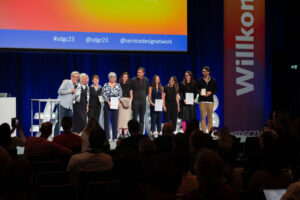
Service Design Award 2023 – Winner, Best Student Project
Student team: Ashleen Nee (Service Designer), Linda Klotzbach (Service Designer), YuYu Sun (Interaction Designer)
Context
Major trauma, which can result in prolonged disability or death, presents a complex challenge. Although most acute hospitals in Ireland accept trauma cases, regardless of their expertise, patients often require transfer to another hospital for definitive care.
Unfortunately, this process can lead to delays in decision-making and treatment, resulting in poorer outcomes and avoidable disability or death.
The Service
To address these issues, our interdisciplinary design team collaborated with a prominent Irish hospital to enhance Major Trauma Care nationwide. Our design concept centres around supporting Trauma Bays, dedicated spaces for live-saving care. By alleviating stress and pressure, our design allows pre-hospital and hospital trauma staff to focus on the major trauma at hand. We aimed to challenge existing technology, optimise physical space, and leverage staff expertise.
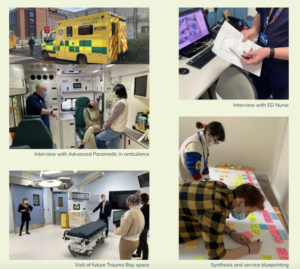
Service Design Awards 2022
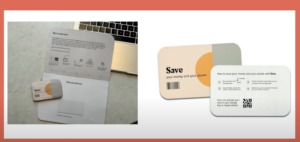
All new and continuing students will receive information by email on how to register and pay fees. For information on Fee Payment and Grant Eligibility go to NCAD Fees & Grants.
NCAD Students Handbook
The Handbook is available for download here
Continuing students and new postgraduate students who accepted the offer will start receiving ‘Invitation to Register’ emails from the week beginning 19th August.
More on the NCAD website.